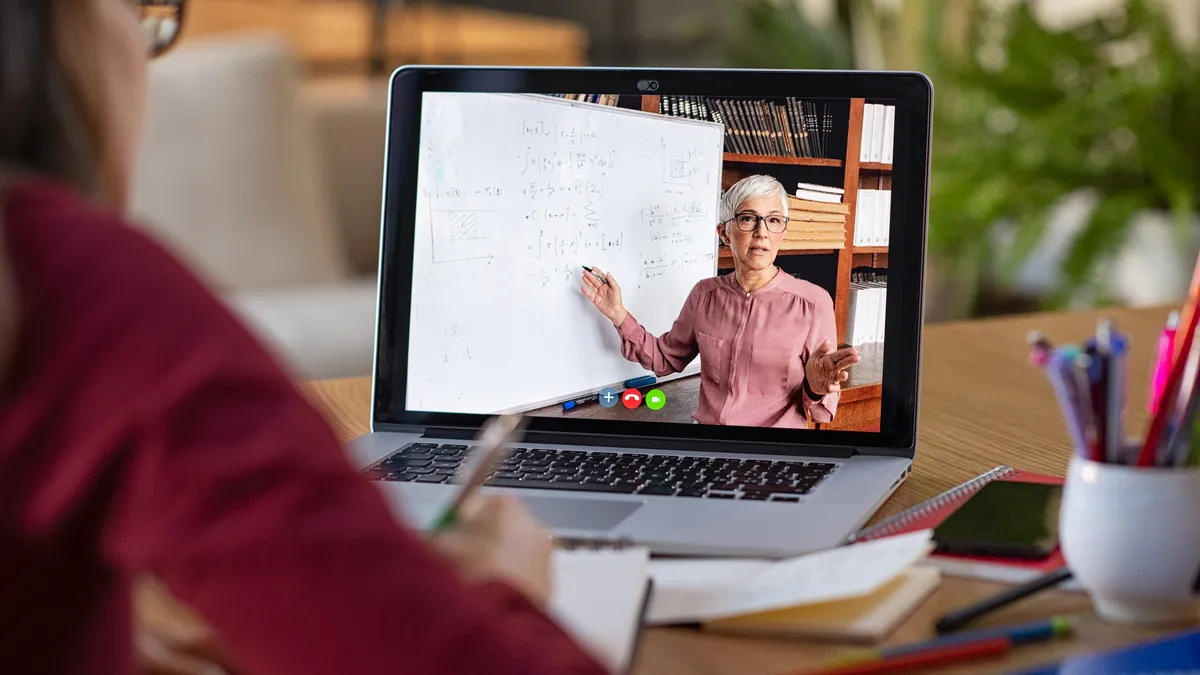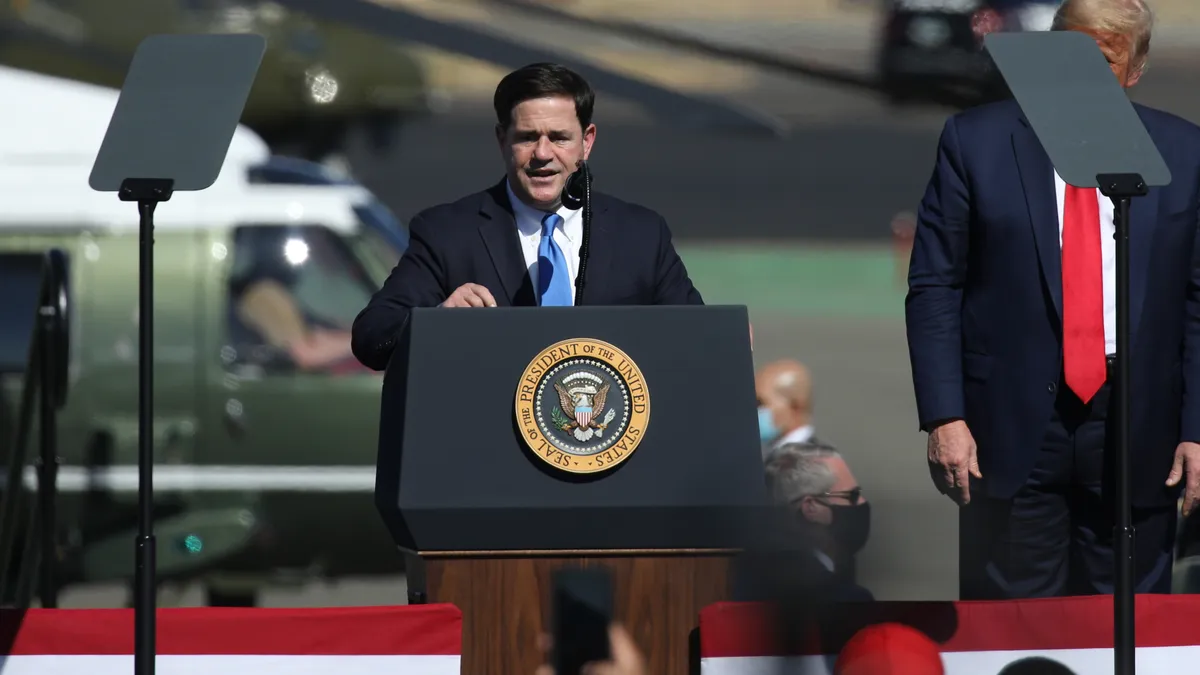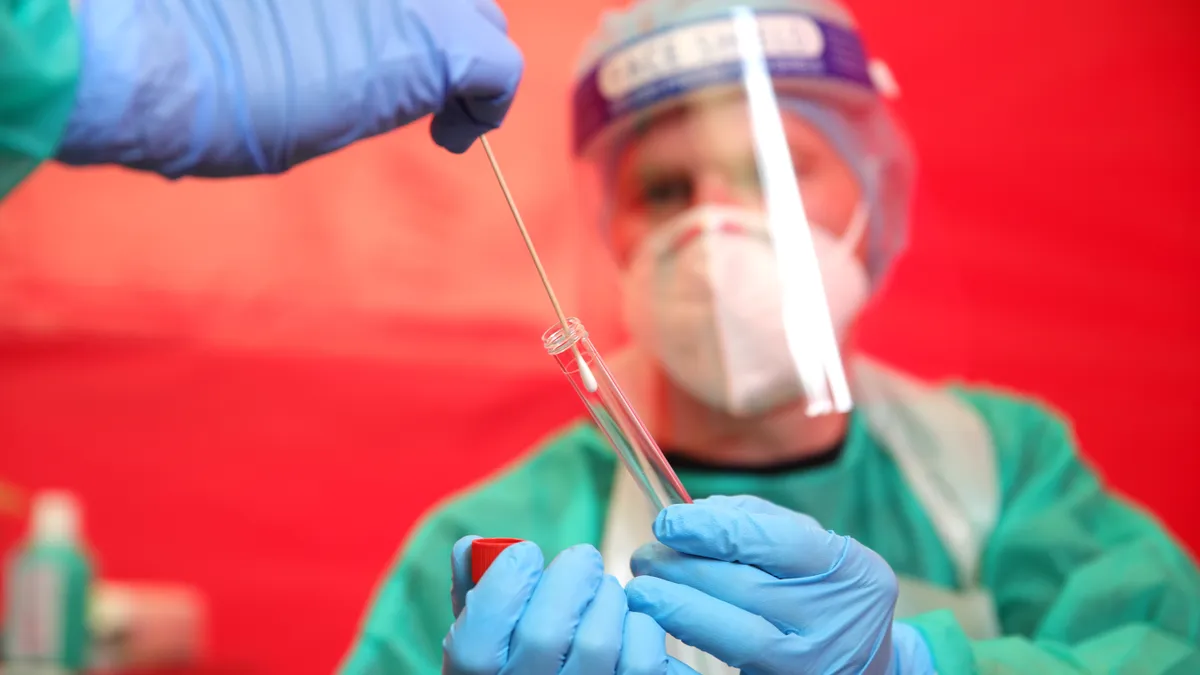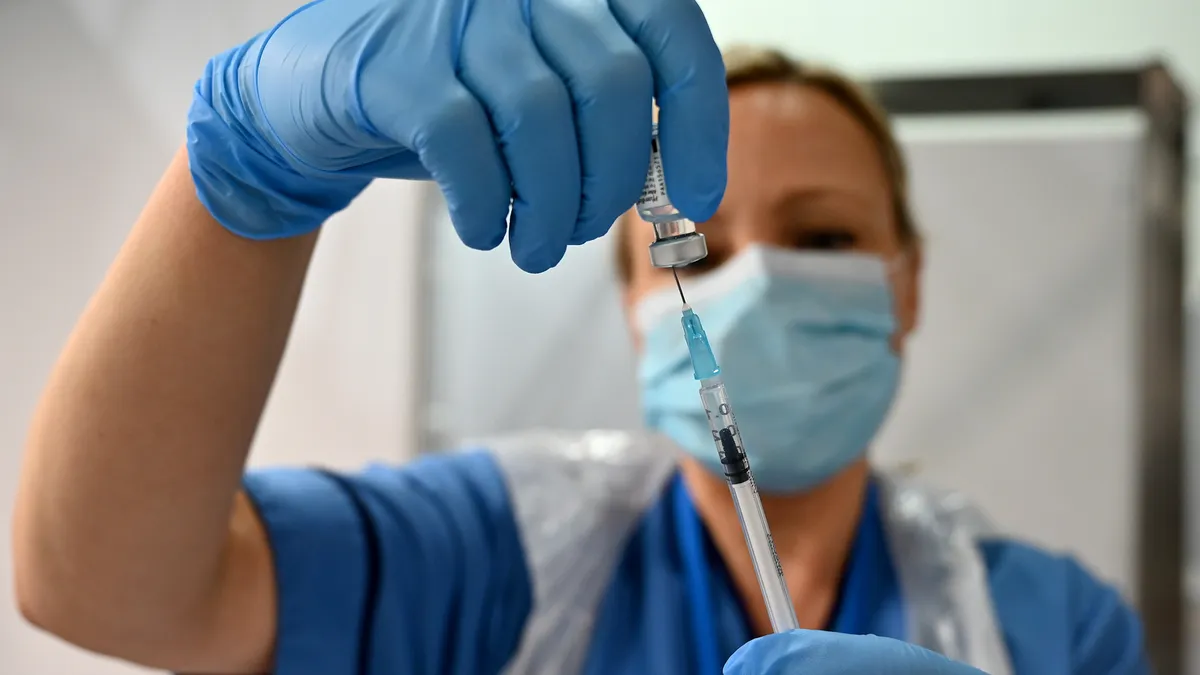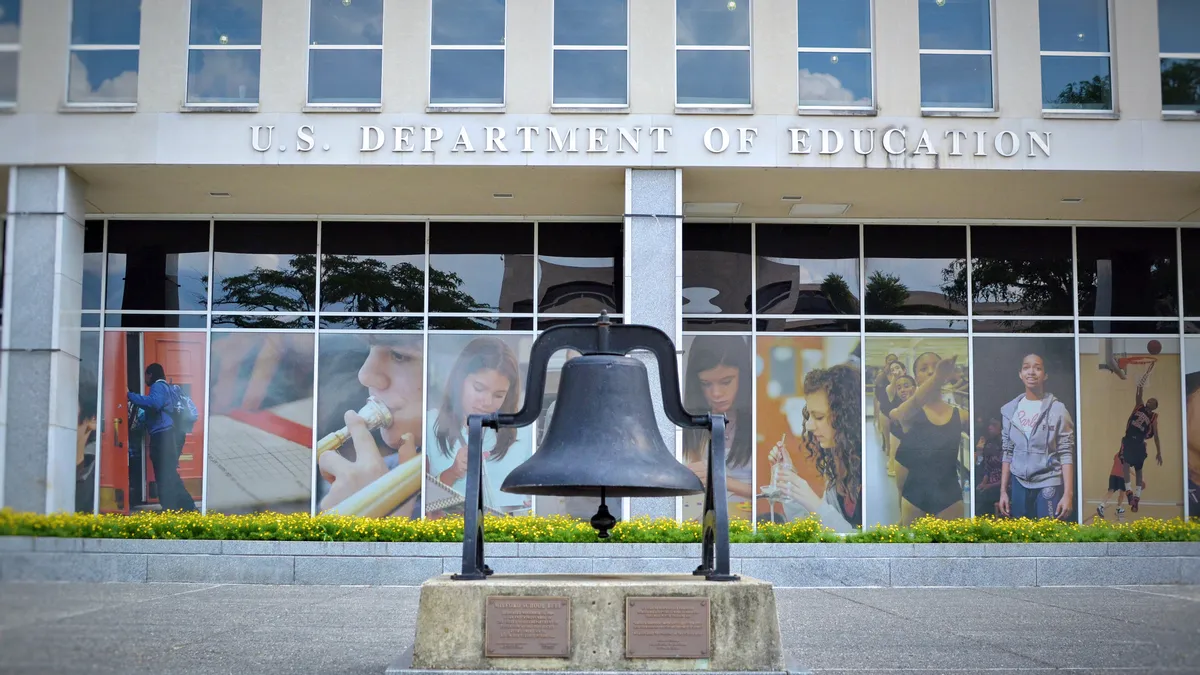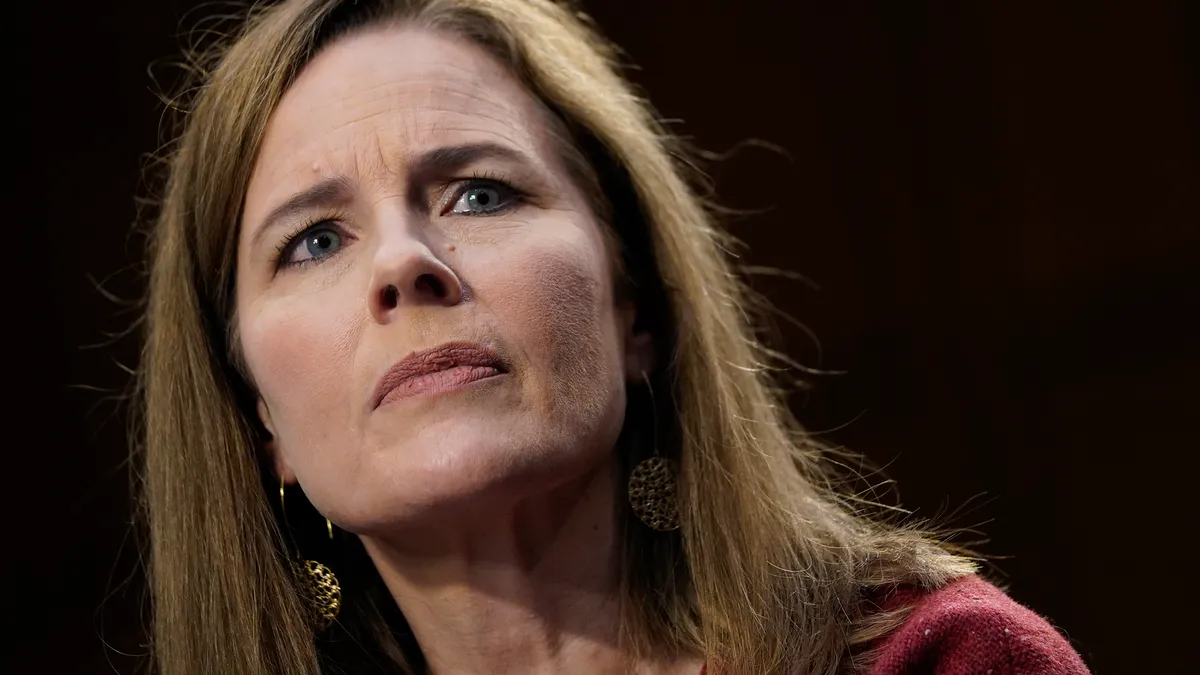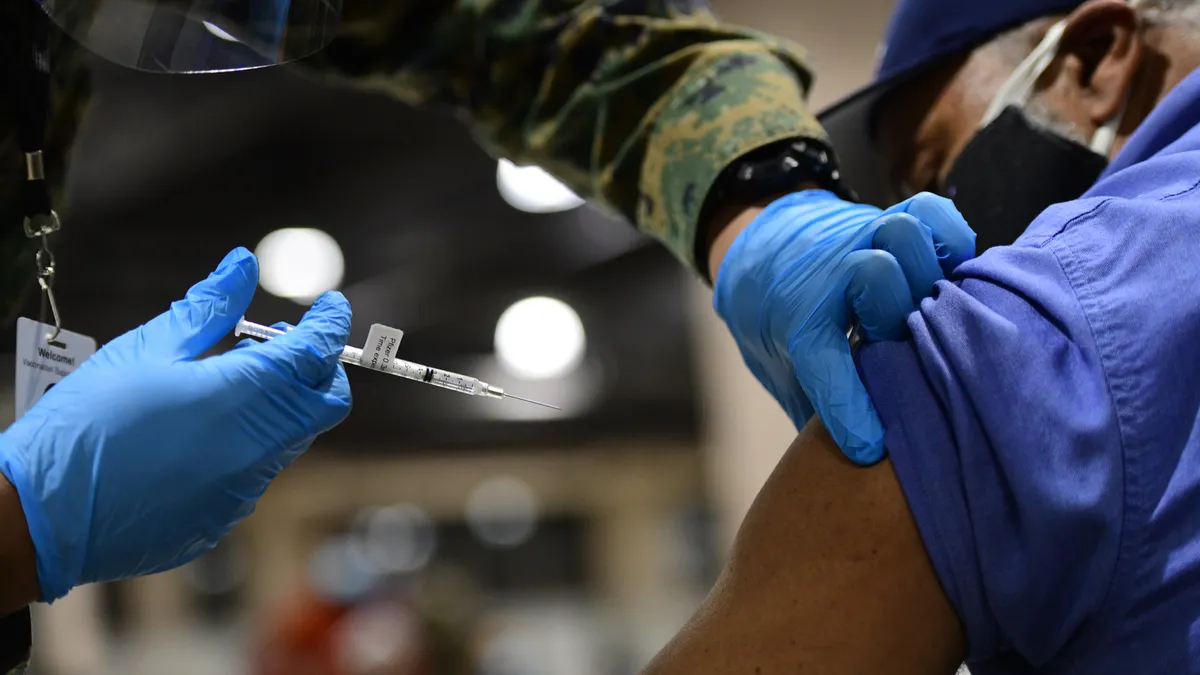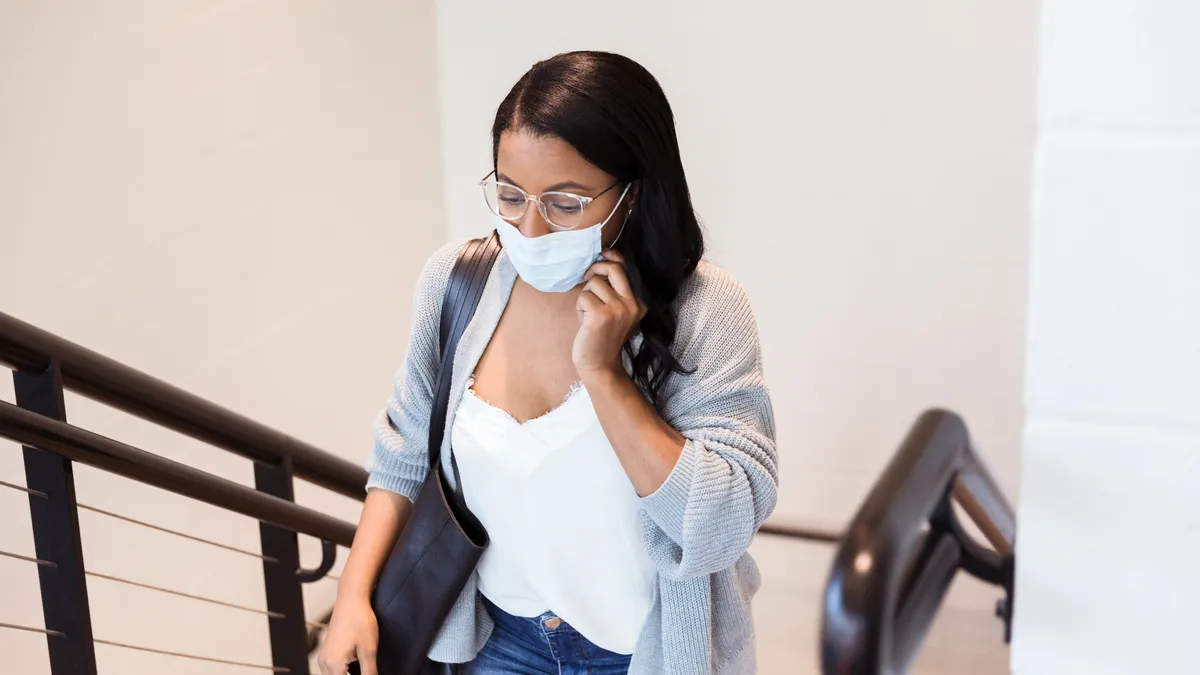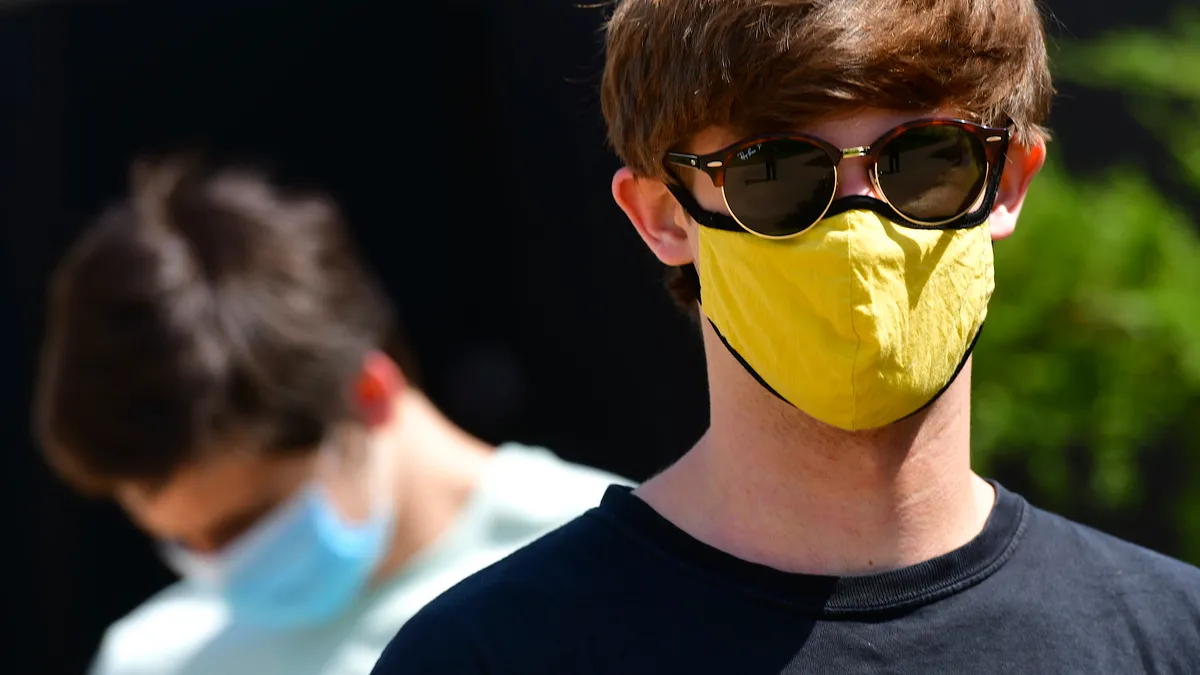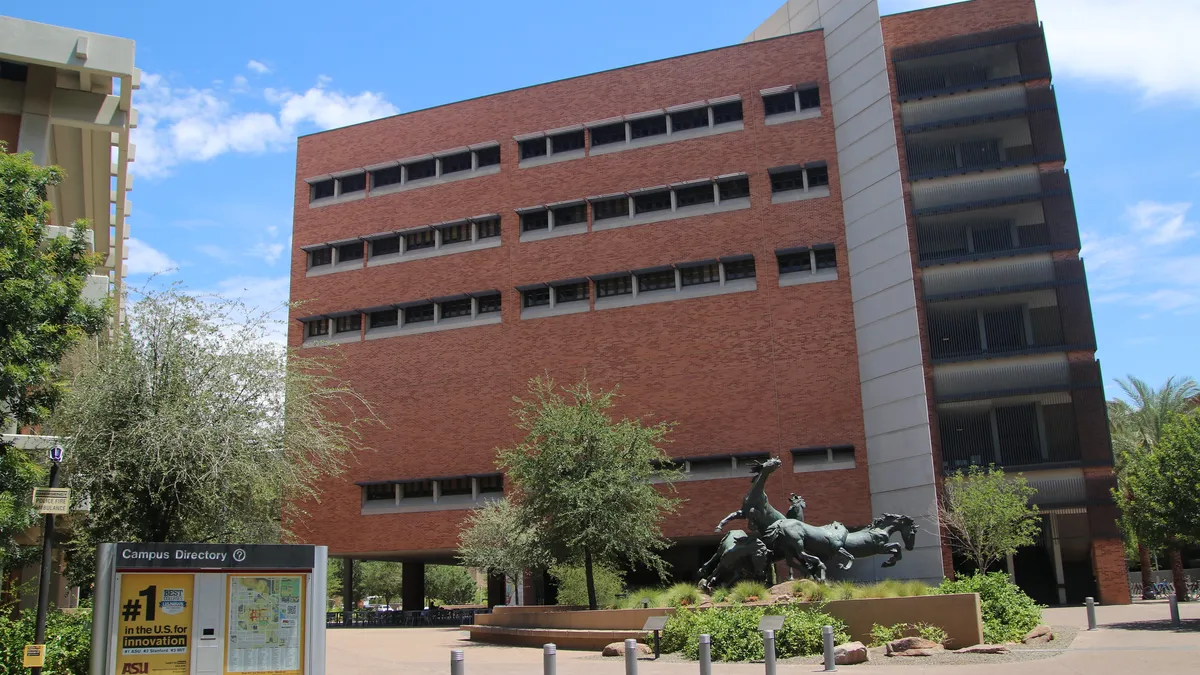Dive Brief:
-
The University of Texas at San Antonio announced this week it is starting the fall semester with three weeks of mostly remote classes amid a surge of coronavirus cases in the state and across the nation.
-
The university appears to be the first high-profile institution to turn to remote classes as many higher education institutions plan to resume in-person classes for the fall.
-
Other colleges are changing up their fall plans by implementing new coronavirus countermeasures such as mask mandates and vaccine requirements.
Dive Insight:
Like many other campuses, UT-San Antonio had planned to return to mostly in-person classes for the fall. But rising coronavirus cases in the region due to the more infectious delta variant forced university officials to temporarily change course.
The university is still opening on-campus residence halls, however, with move-ins scheduled the week before classes start. It's also requiring residential students to be tested upon their arrival.
The U.S. has been regularly clocking more than 100,000 new coronavirus cases in August as the delta variant surges throughout the country, especially in pockets where large shares of the population remain unvaccinated. The strain is two to three times more transmissible than the original version.
In its announcement, the university cited models predicting the current surge of coronavirus cases will peak in Texas in August and decline in September.
"Given all this, we must temporarily adjust our approach to opening our fall semester — balancing an evolving new normal around in-person learning with additional practical controls — until we see the Delta surge begin to diminish," university officials wrote in the announcement.
The delta variant has other colleges reviewing their fall plans as well. Some schools are newly requiring students to be tested periodically for the virus, regardless of vaccination status, while others are adding mask mandates.
But many schools have to contend with state politics. In Texas, Gov. Greg Abbott, a Republican, recently issued an executive order barring colleges and other public entities from requiring the coronavirus vaccine or masks.
UT-San Antonio is taking a political risk, said Robert Kelchen, a higher education professor at the University of Tennessee, Knoxville. However, he added, the school "can frame this as doing as much as possible to keep students on campus and having the disruption to in-person classes be as short as possible."
Kelchen predicted other schools may temporarily put classes online, though he said it's unlikely that colleges will send their residential students back home like some did last fall. "There just isn't the interest or will," he said.
Still, campuses need to prepare to deal with coronavirus cases again this fall even among vaccinated students. Infections could be prevalent in campus dorms and other high-density living situations, said Audrey Pettifor, an epidemiology professor at the University of North Carolina at Chapel Hill.
Consistent testing for the virus will continue to be key. "I think a lot of schools were hoping they weren't going to have to do that," Pettifor said. "But our models are showing that even vaccinated people — even if the whole campus is vaccinated — you're still going to see a lot of infections happening."



